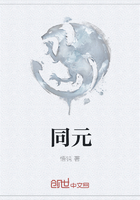Alif woke the next morning to the sound of a music video streaming from the speakers wired to his flat-screen monitor. As he opened his eyes, the newest Lebanese pop starlet, Dania or Rania or Hania, appeared onscreen bottom-first, lolling on a bed of roses, mouthing autotuned lyrics about the intense longing of the peach for the banana. Alif tugged at the waistband of his boxers. A knock on the door stopped him, and he slouched to answer it, opening up just enough to accept a breakfast tray from the maid.
He ate at his desk. Through the floor he could hear his mother moving about the kitchen downstairs, pulling pans out of cupboards, preparing for the second meal of the day before she'd had a chance to properly digest the first. Squinting, Alif attempted to calculate the number of weeks since his father's last visit. He couldn't remember. As a child he had eagerly anticipated the appearance of his father's leather slippers by the front door, laid out in preparation by his mother, signaling the advent of a long stay. They had been more frequent in those days. Now when his father was in the City he called from the opulent New Quarter flat where his first wife lived, a flat to which he had referred on several occasions as "home." Years ago, when it still mattered, Alif had interrogated him about this, asking why their little duplex in Baqara District was not "home" as well. There was a dissatisfied pause. It's your home, his father had answered diplomatically.
Having finished his breakfast and tea, Alif flopped down on his bed again, succumbing to lethargy. Through the wall he could hear Dina talking on the phone, her voice traveling up and down its familiar scale. He put one hand up to the flaking plaster beneath his Robert Smith poster. Dina, too, was an only child-the survivor of a string of false hopes: miscarriages Alif's mother had gossiped about to his father in a sad, insinuating voice in the days when she was still pressuring him for another child of her own. But Alif, like Dina, was to have no sibling-his father already had Fatima and Hazim and Ahmed, the light-skinned progeny of his first wife, and neither his family nor his wallet would tolerate more mottled interlopers. Alif wondered whether Dina had become a reproach to her mother the way he had to his-a single sign of fruitfulness to remind her of barren years.
Dina's voice had ceased; her door opened and closed. Alif took his hand away from the wall. Getting up, he woke his computer and settled down to work.
* * *
The first version of Tin Sari failed to tell him anything of substance. Intisar consistently wrote e-mails in Arabic and chatted and microblogged in English, but that could be true of almost anyone in the City. Her keystroke rate varied too much to track. She probably sat for long minutes over certain e-mails and dashed through others depending on the urgency and nature of the message. For weeks she remained elusive, proving, he thought bitterly, that Intisar was made of finer, subtler substance than his programming languages could recognize, or had ever recognized.
As the data streamed in, Alif imagined her sitting at her desk, dark hair pulled off her face in a sloppy bun, wearing only a T-shirt and a pair of jogging pants as she e-mailed her friends to make plans or worked on her thesis. She had been researching and writing it as long as he had known her, and would leave Al Basheera University with the highest honors available to an undergraduate. Thus well-educated and well-bred, she would make a perfect wife for the man whose name Alif hated with an intensity that frightened him.
Without her, he drifted. His life was again reduced to an uncomfortable circle of women inside the house and men outside it; to the chatter of his mother and the maid or the dirty jokes Abdullah and his friends told, all of which seemed insignificant compared to the memory of Intisar's voice going high and soft as he discovered some new latitude of her body. The work he did became like a reproach, a reminder that he was mottle-blooded, unwanted, unfit for any higher or more visible profession. He ran diagnostics and patched firewalls with absent efficiency, wondering if this numbing grief was permanent.
He took out their marriage contract and looked at it almost every day, feeling foolish each time he did so: how ridiculous to think that it meant anything. He had seen too many Egyptian movies and read too many books. The idea of a secret urfi marriage filled him with a romantic zeal that seemed naive now. He had imagined a fairy-tale chain of events: Intisar would be thrown out of her father's house with only the clothes on her back, and Alif would manfully assume responsibility, leaving her in his mother's tender care as he prepared their marital household. As the weeks passed the vision atrophied until it was painful to him to remember.
Then Tin Sari returned something he did not expect. On a dusty afternoon, just over a month after he had installed a working version of the program on Intisar's machine, a text box popped up on his desktop as he was reworking a few lines of bugged code.
"What do you want?" Alif muttered at it, clicking on a drop-down arrow. It informed him that a pattern had been identified on HP Etherion 700 Notebook and its orbital devices. Would Alif like to assign a file name to this pattern?
Alif's eyes lingered on the blinking cursor in disbelief. Intisar, he typed.
Create filter for "Intisar" in Hollywood diagnostic software?
Enter.
His CPU tower emitted a prolonged series of buzzes and clicks. Alif quit all open programs to free up more processing power.
"Holy God," he breathed. "Holy God." He clicked another drop-down arrow on the text box to reveal a detailed report of Tin Sari's findings. Having watched Intisar for five weeks, it determined that she used Arabic and English at a ratio of 2.21165 to 1, avoided contractions, and, most curiously of all, had in her native language a peculiar preference for words in which the letter alif occurred in a medial position. Alif wondered what to make of this subconscious love poem. Mesmerized, he fed Tin Sari e-mails from his cousins in Thiruvananthapuram, text from the sports section of Al Khalij, anything he could think of to try and prompt a false positive. Without fail, it sorted Intisar's words from all the rest.
Alif struggled to understand what his algorithms were telling him. Perhaps somewhere deep in the mind was a sort of linguistic DNA, roped helixes of symbols that belonged to no one else. For days Alif wrote nothing-no code, no e-mail-and instead wondered how much of the soul resided in the fingertips. He was faced with the possibility that every word he typed spoke his name, no matter what other superficial information it might contain. Perhaps it was impossible to become someone else, no matter what avatar or handle one hid behind.
The program behaved in a way that made him uneasy. He had written it using a certain amount of fuzzy logic: the commands that acted as gray go-betweens in the black-and-white world of binary computing. Alif knew how to talk to black and white and make them see themselves in each other; this was what made him good at his job. But Tin Sari, full of exceptions and shortcuts though it was, should not have been able to detect a pattern so esoteric-a pattern that remained unclear to Alif no matter how much math he threw at it. For the first time in his life he was using a program without understanding how it worked.
When Tin Sari correctly identified Intisar based on a single sentence-a one-line instant message sent on a day of low computer activity-Alif called Abdullah.
"Bhai," he said. "You have to come take a look at this."
"Which?" Abdullah was chewing noisily on something.
"Do you remember that botnet I told you about? The language filter?"
"The girl trouble botnet?"
Alif made a face. "Yes."
"What about it?"
"It's causing my balls to retreat into my chest cavity. I must have done something wrong. I want you to check my algorithms and tell me I'm not insane."
"Not working out?" There was a vegetable crack followed by rapid chewing.
"No, it's-what the hell are you eating?"
"Carrot sticks. I've started a regime."
"Congratulations. Come over."
Abdullah arrived half an hour later, wearing an old army jacket and carrying a messenger bag over one shoulder. This he threw on Alif's bed without ceremony. Overturning an empty wastebasket, he sat down next to Alif in front of the computer.
"Let me see this beast. What's it written in?"
Alif opened the Tin Sari v5.2 program files.
"C++. But the type system is sort of-new. I've made a lot of modifications."
"That doesn't make any sense, but whatever." Abdullah scrolled through lines of code, eyes flickering in the light of the monitor. His expression changed.
"Alif," he said slowly. "What is this?"
Alif got up and began to pace the room.
"I don't know, I don't know. The first version was a mess. So I kept tinkering with it-by the end I wasn't sure what I was writing anymore. I was just finding ways to solve problems as they came up. Parameters and exceptions became the same thing. I stopped telling it 'this but not that' and started telling it 'this, this, this.' And it listened."
"We are still talking about code, yes?"
"I don't know."
Abdullah tapped his foot in frustration.
"Well, does it work?"
Alif shivered.
"It doesn't just work, bhai. It frightens me. Today it correctly identified that girl I told you about based on one sentence, Abdullah, one sentence. It shouldn't be possible. No amount of math can identify something as complex as an individual behavior pattern based on so little input."
"It would seem you are incorrect, since you just did."
"But what does it mean?"
Abdullah swiveled toward him on the overturned wastepaper basket.
"Is this an elaborate way of asking for a compliment? Do you want me to tell you you're a genius? If I had known you asked me over here to rub your ego, I would have brought some lubricant."
Alif collapsed on his bed with a groan, massaging his closed eyes.
"I don't care about that," he said. "I just want to understand what's happened. I need an outside perspective."
Abdullah pursed his lips over his buck teeth.
"What you are talking about-recognizing a complete, individual personality-is something we do automatically. I recognize your voice on the phone. I could probably recognize your e-mails and texts even without seeing your address or phone number. This is a basic function for anybody who isn't suffering from some kind of mental disorder. But machines can't do it. They need an IP address or an e-mail address or a handle to identify someone. Change those identifiers and that person becomes invisible to them. If what you're saying is true, you have discovered an entirely new way of getting computers to think. One might even say that with this botnet, you have endowed your little desktop machine with intuition."
Alif glanced at Abdullah out of the corner of his eye. He sat with a pronounced slouch, his large feet bent at the toe where the rim of the wastepaper basket met the floor.
"You say that so calmly," Alif said.
Abdullah got up.
"Yes, because I'm not convinced it's actually true. It's impossible, as you yourself said. There must be some other explanation for your botnet's unusual rate of accuracy. Regardless, it's a very, very clever trick, and I salute you." He grabbed his messenger bag off the bed. "You need to get out of the house more often, Alif. You're looking very peaky."
* * *
He kept his promise: he made himself invisible to her. Using the profile of Intisar that Tin Sari had created, he instructed Hollywood to mask his digital presence. If she tried to visit his Web site-if she even got that far; he hid it in the dark web where it was safe from prying search engines-her browser would tell her it did not exist. She could create a thousand new e-mail addresses and send him messages from each one: they would all bounce. A search for his names, given and professional, would yield nothing. It would be as if he had vanished from the electronic world.
He did not have the heart to turn his weapon on himself. The very thought of making her invisible to him was too much to bear. He left Hollywood connected to Intisar's machine, reasoning that the additional data from Tin Sari might provide an even more complete picture of her digital self, and that this in turn would help him understand these somnambulant patterns, this language-beyond-language he had discovered through her. It was not spying. He didn't read her e-mail, after all, or check her chat logs: he merely studied the patterns Tin Sari detected in her words. He told himself he had moved beyond mourning into pure science. Sometimes he was even convinced.
Midway through October, a sandstorm blew in from the interior. All morning Alif lay in bed listening to a cacophony of female distress on the roof: the maid, Dina, and Dina's family's maid rushed back and forth to bring in the laundry before it was stained by the rich mineral silt choking the air. He ground his teeth and heard microscopic grains of dust pop between them. No matter how well one taped the windows, it inevitably seeped inside, propelled by some unknown and perverse force of nature. Soon he would get up and go over the inner recesses of his computer tower with his mother's hair dryer on a no-heat setting, a trick he'd learned from sandstorms past. He closed his eyes against the gray half-light. It could wait a few more minutes.
A thud against his window pane made him jump. He scrambled out of bed: on the ledge outside sat the black-and-orange cat. She looked at him entreatingly, ears flattened, coated in yellowish dust.
"Oh, lord." Alif peeled his homemade perimeter of duct tape off the glass, opening the window a few inches. The cat squeezed through and flung herself into the room. She landed near the foot of his bed, sneezing.
"Look at you, you're filthy. I barely recognized you. You're going to get sand everywhere."
The cat sneezed again and shook herself.
"You'd better not make any noise or the maid will come after you with a broom. And don't pee on anything." Alif pulled off the thobe he'd worn to bed and selected a black T-shirt from his wardrobe. After he was dressed he opened the door to retrieve the breakfast tray of flatbread, white cheese, and tea the maid had left for him. The tea was now cold; Alif drank it in a single swallow. Squatting next to his computer tower, he pulled off the casing and examined the CPU. A thin film of dust covered the blades of the exhaust fan. He blew on it experimentally.
"Not as bad as it could be," he murmured. The cat rubbed her head against his leg. As he reinstalled the casing over the CPU, he heard an alarm chime from his speakers.
"Fuck. Fuck." Alif darted to his desk chair and pounded on the space key until the computer monitor crackled to full resolution. His connection speed was dropping fast. Hollywood's encryption software was reporting a string of errors.
It was the Hand.
Alif felt sweat break out on his upper lip. He forced himself to concentrate: he had to protect the people who depended on him. One by one he severed Hollywood's connection with his clients' computers-it would leave them exposed, but a few unprotected hours were better than certain discovery. His fingers seemed stiff and abominably slow. He cursed. Another alarm went off as the first of Hollywood's firewalls was breached.
"How, how, how?" Alif stared at the screen in awestricken panic. "How in all the names of God are you doing this?" Only four of his clients were still connected to his OS. OpenFist99, sever connection? Yes. TheRealHamada, sever connection? Yes. The Hand moved deeper into his system.
"This is not possible," he whispered.
Jai_Pakistan, sever connection? Yes. Alif looked at his client list: the only machine still accessible was Intisar's. He was running out of time.
"Don't worry," he said, "it's not you they're after." He pulled the master plug out of the wall. With a whine, his computer went dark. Alif gazed at his vague reflection in the black screen, breathing in uneven gasps. He heard sand blowing against the window. Little satisfied sounds came from the cat, who had discovered the cheese on his breakfast tray. Time and the world slipped serenely forward as though nothing out of the ordinary had occurred. He shook his head to clear it. What had occurred? A series of timed electrical impulses, on-off on-off. That was all, and it might mean a prison cell for the rest of his life.
Alif waited half an hour before turning his system on again. He ran three sets of diagnostics on Hollywood, whispering a prayer before each one: they returned no anomalies. Reconnecting his clients, he debated whether to send an e-mail letting them know what had happened, and decided against it-what could they do but panic? He would find out how the Hand had managed to cut through his defenses, he would go through the code line by line if he had to.
"I can fix this," he murmured to the screen. A wave of nausea seized him. He leaned forward with a groan, pressing his forehead to the cool metal edge of his desk. Sand hissed around the house, aspirated like some deranged human voice, some haunted voice. Alif heard Dina turn on music in her room-a cheerful debke dance song-as though she, too, found the storm unsettling. He got out of his chair and curled up against the wall they shared. When his computer was on and connected to the grid, he never felt as though he was alone; there were millions of people in rooms like his, reaching toward each other in the same ways he did. Now that feeling of intimacy seemed fraudulent. He lived in an invented space, easily violated. He lived in his own mind.
The cat padded up to him and put one sympathetic paw on his knee.
* * *
That night he dreamed of a woman with black-and-orange hair. She slipped into bed beside him, unself-consciously naked, and comforted him in a language he had never heard. Her eyes shone in the dark. Alif responded to her without embarrassment or surprise, seeking her mouth and the hollow of her throat while she purred. She ran one hand along his thigh with a look of invitation. He was checked by a feeling of regret.
"Intisar-" he said. The woman made an irritated noise and nipped his shoulder. Urgency overwhelmed him. He covered her slender form with his, shifting his hips as she threaded her legs around him. Delight stole over his body in waves. She cried out when his enthusiasm intensified. Bending to her ear, he whispered in the language she had spoken, telling her they had to be quiet, quiet; obediently, she stifled her moans in his neck. The end came quickly. Alif collapsed against the warm body beneath him, and the woman laughed, speaking a word of triumph. She kissed him with a fond smile. Alif begged her to tell him her name, but she was already receding into darkness, leaving behind a scent like warm fur.
Alif woke to the sound of the cat batting her paw against the window. He felt sated and calm. The storm winds were no longer audible, and the City beyond had descended into a deep, restorative silence. He rose, wincing; his calf muscles were sore. When he opened the window the cat blinked at him once and leaped down into the courtyard. He leaned out and took a breath. The air was purer now, stripped of pollution and heat by the sand. Dawn tempered the eastern horizon. He turned at the harsh sound of a metal hinge followed by feminine coughing: Dina pushed her own window outward, waving one hand to clear the dust that had accumulated on it in the storm. She wore a long green scarf and held it coquettishly over her face with her free hand, like a palace maiden from an old Egyptian film. The image charmed him.
He called her name in a soft voice. She turned to look at him, surprised.
"Oh! What are you doing awake?"
"I had a-" He blushed. "I just woke up, that's all."
"Are you all right?"
"Yes, but not really." He took another long breath. "I wish it was always like this. The air and the light."
"Me, too." She followed his gaze out over the City. The skyscrapers of the New Quarter looked as though they had been built out of pearl and ash. In a few hours workmen would come to clear the dust and return them to their glassy anonymity, but for now they looked like part of the desert, a natural extension of the great interior dunes.
"Like a story," Dina said. "Like a jinn city."
Alif chuckled. "Just like a jinn city," he agreed.
They stood in silence for a moment.
"I'm going to pray fajr on the roof," Dina said finally. "Be well."
"God grant you paradise," said Alif. Dina's eyes crinkled in a smile. Her window swung shut. Alif lingered for a minute longer, gathering his thoughts. He would shower and have some tea-there was no point in returning to bed with the day so limpid before him. Redoubling his defenses against the Hand would require all his skill; he might as well begin now, while he felt confident and clear-headed. He would not think about the possibilities that lay before him: at any time a knock might come on the door and reveal a pair of State security policemen in khaki uniforms. Or worse-they might not knock at all. They might appear in the middle of the night and drag him, bound and hooded, to one of the unnamed political prisons that lay beyond the western edge of the City. Alif closed his eyes and banished the thought. He must not lose focus.
Once clean and caffeinated, he sat at his desk and opened one of his code editing programs. Somewhere there must be an explanation for the swiftness with which the Hand had entered his system-a weak or outmoded function in his firewalls, a flaw in his overall design. He wondered uneasily whether the attack had been a coincidence-the result of a roving audit-or targeted at himself. Was his name out in the open? There had been no warning, no chatter on the City's mainframes about any captured gray hat cracking under torture and delivering up identities or locations. His clients were all as safe as he could make them up until the very moment the Hand appeared. No, Alif could not have been the intended target.
"That almost makes it worse," he said to his machine. If the attack was a coincidence, the Hand must be a magician to break through his defenses so effortlessly and with so little information. It was obscene, unbelievable. Alif knew no one with this level of skill. His own ability was childlike by comparison. He leaned back in his chair and rubbed his eyes. "There is always a way," he said. "Know there is a way, and the way will present itself." The words seemed naive as soon as he said them.
He worked steadily until midafternoon, reviewing and adjusting code with an attention to detail that was fanatical even by his own standards. He broke when the maid called him for lunch. Trudging downstairs, he found his mother seated at the kitchen table, washing a bowl of red lentils for the evening meal. She hummed a Bollywood song as she massaged them, sending cloudy trails of sediment up through the water.
"Hi, Mama." He dropped a kiss on her head.
"There's saag paneer on the stove," she said. "The maid cooked it specially for you. You still like saag paneer?"
The question irked him. "Yes, I still like saag paneer." He took a plate from the cupboard and helped himself.
"Your father is in Jeddah," continued his mother. "He sent me a photo on the computer. He is getting tan, out in the sun all day supervising the new natural gas pipeline. A shame to get so dark. I told him to put sunscreen."
"Good. Great."
"You should call him."
Alif snorted. "Why shouldn't he call me?"
"You know how busy he is. Better for you to call."
Alif bent to take a bite of saag paneer and studied his mother over the edge of his plate. She pushed the lentils back and forth, her face expressionless aside from a little crease of concentration on her forehead. Alif wondered whether the photo-a perfunctory snapshot of an absent husband; he could see it in his mind-depressed her. There were other photos, prints she kept in a sandalwood box in her room, that she had shown him when he was small. In these she and his father were always together, walking along the Old Quarter wall or buying flowers from one of the stalls in the souk. She looked radiant: an adored, illicit second wife.
Alif wondered at what point the thrill of the marriage had dimmed for his father. He suspected it was his birth. A problematic son with dark-skinned pagan blood in his lineage, the product of a union unsanctioned by his grandparents, impossible to wedge into good society. A daughter would have been preferable. If she was pretty and well-mannered, a daughter could marry up; a son could not. A son needed his own prospects.
Alif heard his phone buzz upstairs.
"I've got to get that," he said, pushing his plate away. "Please tell the maid the saag was delicious."
He jogged to his room and picked up the phone: Abdullah's number was flashing on the screen. He held it to his ear.
"Yes?"
"Alif-jan. I can't talk. Can you come over?"
Alif felt his heart rate spike. "What's wrong?"
"I just said I can't talk," said Abdullah impatiently. "Yallah, waiting for you." He hung up. Alif shoved the phone in his pocket, cursing. He ransacked his cluttered room for a pair of shoes, pulled them on, and went out into the street.
* * *
Abdullah was pacing back and forth across the interior of Radio Sheikh when Alif arrived. A young Arab man with bleached hair was with him.
"Alif, thank God." Abdullah crossed the room in two bounding steps and shook his hand. Alif curled his lip.
"A handshake? What are we, third cousins? What's going on?"
"Never mind the handshake. I'm nervous, that's all. Alif, this is Faris. Faris, tell him what you've just told me."
The Arab man looked around restlessly. "Are you sure he's all right?" he asked.
"All right? All right? My dear sahib, Alif has been with us since the beginning. It is vital that he be told."
Alif and Faris regarded one another, frowning.
"Fine," said Faris, "here is the story. I work in the Ministry of Information."
"One of my moles," Abdullah explained.
"It's low-level work-mostly I collate documents and answer the telephone. But on Tuesday I sat in on a meeting-"
"With the assistant minister himself," Abdullah said gleefully.
"-and I heard something strange. There were two men from State security at this meeting. They talked about a carnivore program they use for their digital counterterrorism operations, and how successful it has been. They asked the minister to congratulate the man who designed it, and to thank him for spending so much of his own personal time administrating it."
Alif felt his eyes begin to swim. "You're talking about-"
"The Hand," said Abdullah triumphantly. "Is it a program? A man? Now we know: it's both. Hand in glove, so to speak."
"It gets better," said Faris, looking more at ease, "When they referred to this person, they called him 'ibn al sheikh.'"
Alif gaped at him. "He's royalty?"
"That's right!" crowed Abdullah, "We're being nibbled to death by a silk-diapered aristocrat!"
"You sound almost happy," said Alif, disgusted.
"I'm not," said Abdullah. "I'm terrified. This is hysteria you're witnessing."
Alif sat down on the welder's bench in the center of the room and put his head in his hands.
"The Hand broke into my machine yesterday," he said quietly.
Abdullah's eyes widened. Faris grunted in sympathy. "It's happening more and more," he said. "You do what you can-change your handle, change all your passwords, switch to a new Internet provider or get a revolving IP address. And do it fast. You've got maybe another twenty-four hours, tops."
Abdullah shook his head, looking pale. "Alif moves in more rarefied ether than the rest of us. His case is not so simple. If the Hand has cracked him, we are all doomed men."
Alif looked up at Faris. "How long until we have a name?" he asked.
Faris sighed. "I'm not sure. There has to be a record of this person's work at the ministry-it's just a matter of finding it. I'm mining their database remotely from my home computer right now."
"Okay." Alif stood. Sweat made his T-shirt cling to his back. "I have to go. Call me as soon as you know anything else."
"Courage." Abdullah gave him a lopsided smile. Alif slapped him on the shoulder.
"Thank you, brother."
* * *
He took a detour on the way home in an attempt to calm down. There was a little irrigated plot of date palms at the edge of Baqara District, the remnant of an orchard some wealthy cattle merchant had refused to sell when the City overran its walls. Since no deed to the land could be found, the plot sat untouched, an odd bucolic interruption in the dust-colored rows of apartments. Several years earlier a taxi driver from Gujarat had begun to pollinate the feral trees again. Now people in the neighborhood enjoyed a tiny date harvest every autumn, drying and storing the fruit in their homes like farmers.
The plot had already been stripped of this year's sticky bounty and was quiet when Alif arrived. He skirted along a hillock separating two shallow canals that ran among the trees, breathing in a green stifling scent and imagining himself refortified. He thought of the woman with black-and-orange hair. His groin tightened. A breeze lifted the palm fronds above his head, scattering their shadows across his damp limbs. The trees, like the woman in his dreams, belonged to some other mode of being and were not quite real. Alif lay down on the earth and closed his eyes. He would stay here until the stress and sweat drained from his body and he could think again.
The slapping sound of a woman's sandals from beyond the edge of the orchard interrupted him. Alif recognized Dina's discreet, feminine gait. He rose, jogging along the hillock toward the street until the sound of traffic and machines returned.
"Sister," he called. Dina turned. With an uneasy feeling Alif noticed the box under her arm.
"How funny," she said. "I was just coming to see you. I've been back to the Old Quarter." She lifted the box in her hands.
Alif swallowed. "Why," he asked hoarsely.
"Your friend called me."
"You gave her your number?"
"She asked. It seemed impolite to refuse. Besides, her father was watching."
Alif felt his eyes begin to burn.
"She said she had something to give to you," Dina continued. "So I met her at her house. She looked as though she'd been standing on her head…hair a mess, circles under her eyes. She gave me back the box you sent-it feels heavier now-and turned me away. Without offering me tea or anything. It was all very rude."
Alif took the box from her hands.
"I don't like being summoned by rich girls like somebody's maid," said Dina. "I don't understand why she couldn't just call you or e-mail you if she wanted to give you something."
"She can't e-mail me," Alif murmured. Something slid along the bottom of the box. He looked around: women on their way to the souk regarded him curiously.
"Let's go." Alif did not quite touch Dina's shoulder to lead her.
"What? Where?"
"Just into the date orchard. I can't open this on the street." He ducked back in between the palms. Dina sighed and followed him.
"Can't it wait until you get home? People will get the wrong idea if we hide in here together."
"Fuck people."
Dina gasped. Alif ignored her, sitting down on a patch of sunlit dirt and reaching into his pocket for the Swiss Army Knife he carried. The box had been taped shut in a hurry, leaving wrinkled tacky edges. He slit the seams and looked inside.
"What the hell," he muttered.
"What is it?" Dina peered over his shoulder. Alif lifted out a book bound in dark blue linen. It was evidently quite old-brittle to the touch and faded in places. A faint odor emanated from its pages. For a disconcerting moment, Alif was reminded of Intisar's pale arms in the afterglow of their lovemaking.
"It's a book," he said.
"I can see that," said Dina, "but the title's blurred out. I can't read it."
Alif lifted the manuscript into the light and squinted at it. The title appeared to be written by hand in an old-fashioned kind of Arabic calligraphy, with gold ink. It was flaking badly and some of the letters were barely visible. He was startled to discover that the first word was his own name.
"Alif," he said excitedly. "It says Alif!"
Dina snatched the book from his hands.
"No it doesn't," she said after a moment. "It says alf. Alf Yeom wa Yeom. The Thousand and One Days."















